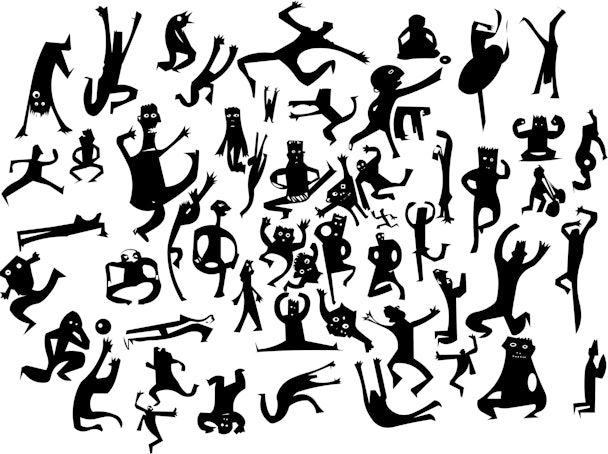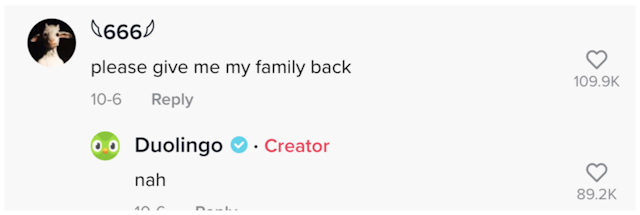Gen Z demands absurdity from their ads
Gen Z is altering the rules of brand communication. A shift from authentic to absurdist advertising on TikTok serves as a micro digital shift with the potential for macro disruption.

A hazy vision of digital marketing’s future can be deduced from the current happenings on TikTok, the Cowboy Country of brand advertising. Where the Duolingo bird threatens murder for incomplete lessons and Converse spent God-knows-how-much money paying a comedian to talk to himself about sleeping inside one of their shoes. The Converse ad is nonsensical. It says a whole lot of nothing apart from fleeting mentions of comfort – but it works. A top comment on the video declared “this is how you do advertising, just let the creatives do what they want with it.”

Without sounding like a TikTok for Business sponsored article, studies have found that ads on TikTok are more memorable than those found on other platforms. TikTok users also associate brand content on the platform with a remarkably high degree of authenticity.
Ah, yes, authenticity
“Brand authenticity” is the marketer’s version of 2012’s “YOLO” – horribly overused to the point of inducing a physical wince.
The only group who perhaps loves authenticity more than marketers is Gen Z. Study after study relays how the generation places the highest value on “brand authenticity.” Gen Z’s take on authenticity is pushing brands to break all previously established rules of brand communication. This is especially evident on TikTok, where Gen Zers makes up a whopping 60% of the platform’s userbase. Gone is the professionalism of yesteryears (i.e. Duolingo’s social playbook probably doesn’t state “We can threaten to take families hostage as long as it's in a cute, jokey way ;)”).

This isn’t brand authenticity. This is brand absurdism
Brand authenticity can look like a silly dance when an influencer attempts to conceal a business deal (despite it being clearly labeled #Ad) with a wholehearted reading of a brand-provided script. It looks like an ad, smells like an ad, yet the goal is still to camouflage said ad. Doing something because you were paid to do it doesn’t exactly scream authenticity.
It shouldn’t be surprising, then, that our trusty BS detectors, Gen Z, has pushed brands towards absurdism. There is a delight in forcing brands outside their carefully constructed guidelines. The absurdity acknowledges the absurdity of advertising (meta).
But keep in mind: This is just the start. We can expect absurdism to expand far beyond the digital walls of TikTok as branded chaos proves to win eyes and hearts. Gen Z is a highly contested audience and TikTok is a powerful tool to glean a look into their innerworkings. Brands who view TikTok as an incubator for future consumer expectations will successfully predict and potentially sculpt the future of B2C communications.
In the end, the unexpected grabs attention. Brands acting out-of-character, maybe even a little unprofessional, but definitely absurd, is a recipe for finally winning over Gen Z.
Emily Gorey is a creative strategist at Code and Theory.
